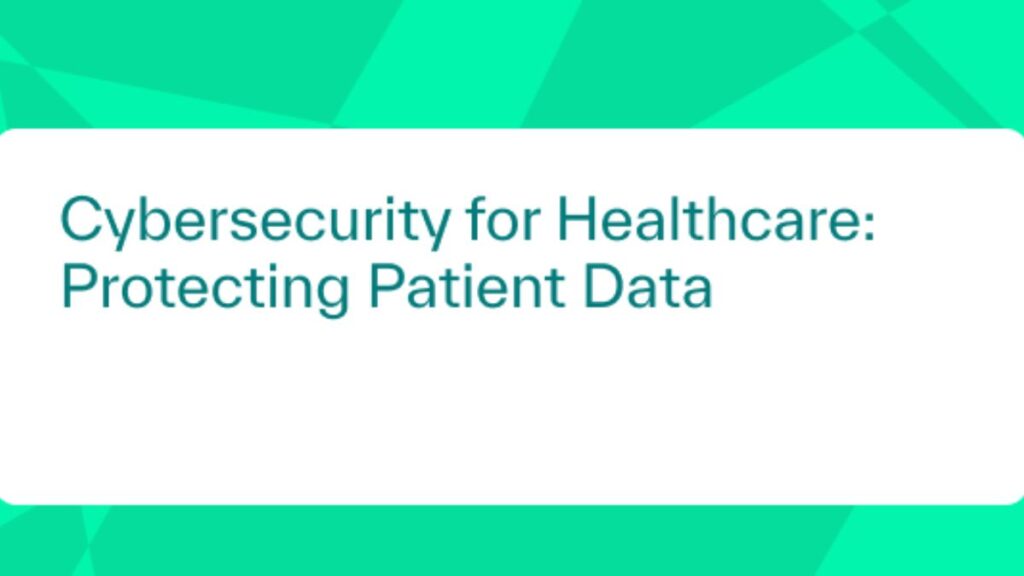In today’s digital-first healthcare environment, patient data has become one of the most sensitive and valuable assets. As Singapore continues to evolve into a Smart Nation, its healthcare sector has undergone rapid digitalization, from electronic health records (EHRs) to AI-powered diagnostics and telemedicine platforms. However, this digital leap has brought increased vulnerabilities. Healthcare providers are now primary targets for cybercriminals, making cybersecurity not just a regulatory requirement but a fundamental pillar of trust and patient care.
Why Healthcare is a Prime Target for Cyber Threats
Globally, healthcare has consistently ranked among the most targeted industries for cyberattacks—and Singapore is no exception. The reasons are clear:
- High-value data: Patient records contain identity details, financial data, insurance information, and health histories, making them more valuable than credit card numbers on the dark web.
- Interconnected systems: Hospitals and clinics operate on complex digital ecosystems. From IoT-enabled devices like heart monitors to remote diagnostic systems, each connected node is a potential entry point.
- Time sensitivity: In a life-or-death environment, ransomware attackers exploit urgency. Delays in access to critical systems can pressure providers into paying ransoms.
The 2018 SingHealth breach, where the personal data of 1.5 million patients was compromised—including the Prime Minister’s—was a wake-up call for Singapore’s healthcare system. Since then, both private and public healthcare providers have doubled down on enhancing their cyber resilience.
Compliance Isn’t Enough: Why Healthcare Providers Must Go Beyond Regulations
Singapore’s Personal Data Protection Act (PDPA) and the Cybersecurity Act set baseline requirements for the protection of personal data and critical information infrastructure. The Ministry of Health (MOH) also mandates healthcare providers to follow strict IT governance protocols.
But compliance alone doesn’t equate to robust cybersecurity. Cybercriminals move faster than regulations. While MOH’s Healthcare Cybersecurity Essentials (HCSE) guidelines provide a framework, true resilience requires a proactive, adaptive approach that integrates:
- Real-time threat detection
- Incident response preparedness
- Ongoing staff training
- Zero Trust architecture
- Data encryption at every stage
How Cyber Security Agencies in Singapore Empower Healthcare Providers
A specialized cloud security service provider in Singapore brings expertise, technology, and operational knowledge that internal IT teams may lack—especially in the resource-constrained healthcare environment.
Here’s how they provide value:
- Risk Assessment and Compliance Audits: Evaluating current systems against both regulatory standards and global cybersecurity best practices.
- Managed Detection and Response (MDR): 24/7 threat monitoring, leveraging AI and machine learning to flag anomalies in real-time.
- Data Encryption and Backup Solutions: Ensuring all patient data is encrypted in transit and at rest, with secure backups in place for recovery.
- Penetration Testing: Simulating cyberattacks to uncover vulnerabilities before malicious actors do.
- Digital Forensics and Incident Response: Offering rapid containment and analysis in the event of a breach.
- Cybersecurity Awareness Training: Educating clinical and administrative staff on phishing, social engineering, and proper data handling.
Emerging Technologies Reshaping Healthcare Cybersecurity
Singaporean healthcare providers are increasingly embracing emerging technologies not just for diagnostics and treatment—but also for cybersecurity.
- Artificial Intelligence (AI): AI-driven tools are being deployed to predict, detect, and neutralize threats faster than human teams could respond.
- Blockchain: For medical data integrity and secure information exchange across providers.
- Zero Trust Models: Assuming that every user, device, and application—internal or external—is a potential threat until verified.
- Secure Access Service Edge (SASE): For secure access to cloud-hosted systems, especially in hybrid care delivery models.
Top Cyber Security Agency Singapore Providers for Healthcare
When selecting a cybersecurity partner, healthcare providers must prioritize experience, healthcare-specific knowledge, and adherence to Singapore’s regulatory framework. Here are some of the top cyber security agency Singapore options that are well-equipped to support healthcare organizations:
- InTWO
InTWO is a recognized Microsoft Azure Expert MSP that specializes in securing cloud-based healthcare environments. With expertise in cloud migration, data governance, and compliance alignment, inTWO helps healthcare providers in Singapore protect sensitive patient data while enabling digital transformation. Their cyber defense solutions integrate seamlessly with hybrid environments, offering tailored security frameworks that meet both PDPA and HIPAA-equivalent requirements. - Ensign InfoSecurity
Headquartered in Singapore, Ensign is one of Asia’s largest pure-play cybersecurity firms. Their offerings include cyber threat intelligence, attack surface discovery, and managed SOC services. Ensign has deep experience in securing healthcare institutions and critical infrastructure, making them a go-to partner for national healthcare providers. - ST Engineering Info-Security
A subsidiary of ST Engineering, this agency delivers comprehensive cybersecurity services including incident response, threat monitoring, and industrial control system protection. Their extensive experience working with government-linked entities makes them a trusted partner for public healthcare institutions. - Quann (now part of Ensign)
Previously known as Quann, the integrated cybersecurity arm of Ensign offers managed security services, vulnerability management, and compliance solutions. They support a wide range of healthcare clients with scalable solutions tailored for SMEs and large hospitals alike. - NCS Group
Part of the Singtel Group, NCS provides holistic IT and cybersecurity solutions to the healthcare sector. Their services range from endpoint protection and risk management to next-gen firewalls and data leak prevention.
Building a Culture of Cyber Hygiene in Healthcare
While tools and external agencies form the backbone of cybersecurity, people remain the frontline defense. Many healthcare breaches stem not from sophisticated hacks, but simple mistakes—clicking on a phishing email, misplacing a USB drive, or poor password hygiene.
To foster a secure environment, healthcare institutions in Singapore must:
- Conduct regular cyber awareness training
- Implement role-based access control
- Use multi-factor authentication (MFA)
- Review and update cybersecurity policies quarterly
- Reward vigilant behavior among staff
Case Study Snapshot: Strengthening Defenses Post-Attack
A major private hospital in Singapore recently partnered with a cyber security agency Singapore to rebuild its cybersecurity posture after a ransomware scare. The agency performed a forensic investigation, patched system vulnerabilities, installed AI-based intrusion detection, and trained staff. Within 90 days, the hospital was not only compliant with MOH’s HCSE guidelines but also equipped with a Zero Trust framework that drastically reduced lateral threat movement.
Conclusion: From Reactive to Resilient Healthcare Security
In a digitally connected healthcare ecosystem, the cost of complacency is far too high. Singapore’s healthcare providers must go beyond just meeting regulations—they must embed cybersecurity into their operational DNA. This requires continuous investment in technology, partnerships with expert cyber security agencies, and a strong internal culture of data stewardship.
By working with leading cyber security agency Singapore options like InTWO, Ensign, and ST Engineering, healthcare providers can ensure that patient trust is safeguarded—not just today, but for the digital healthcare era ahead.







